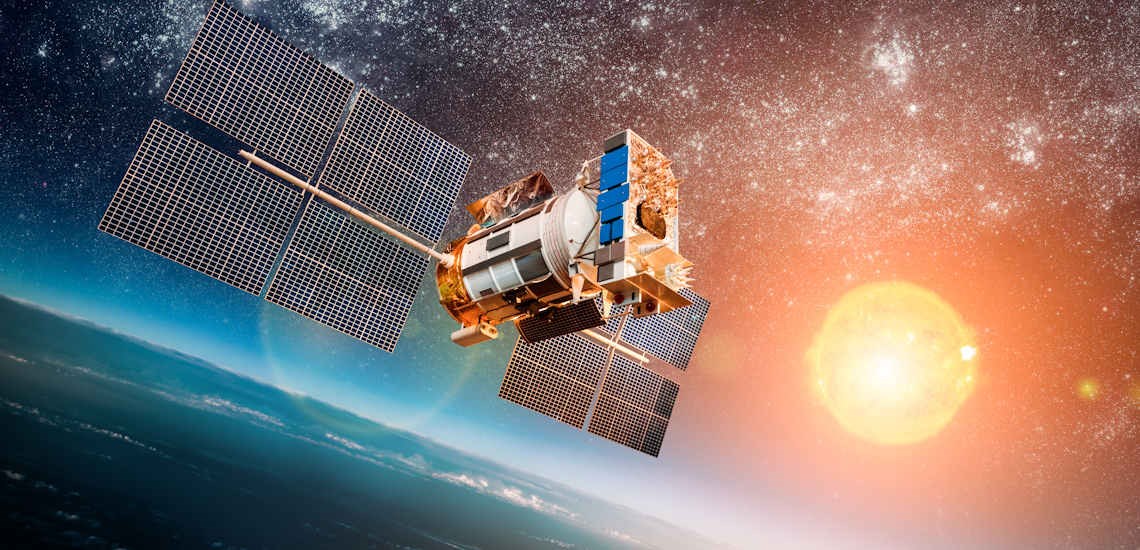Jonathan is a professional engineer with a passion for all things maritime electronics. He founded Acutec Systems in 2004 and continues to lead the teams in Europe and Australia, delivering communications, entertainment and IT solutions for vessel operators.
Get Ready for the Sun!

On several days of each year, interference from the Sun completely wipes out satellite communications here on Earth. The phenomenon is known as a sun outage and for those who rely on communications at sea, it can mean trouble.
Almost all communications satellites sit in space directly above the Equator. Unfortunately, on exactly two days a year, so does our sun. These dates are known as the spring and autumn equinoxes.
On one of these days, at exactly the right time, let’s suppose you are standing, with your ship’s satellite antenna at exactly the right spot on the Equator. When you look up, the Sun and your satellite will be directly overhead. The Sun will appear behind the satellite as you view it.
Around about now, your retinas will cook, and your eyes will stop working. Even if you are wearing sunglasses. This is a thought experiment so we don’t need to consider health and safety.
But your antenna is also pointing at the Sun. In almost exactly the same way, the extremely sensitive radio receiver in it will cease to operate. After all, as well as the Solar System's biggest light source, the Sun is its biggest radio source, obliterating every other signal in your antenna's line of site.
Not to worry though. Your expensive antenna isn't broken. It will recover. Rotation of the Earth means that within about 12 minutes, the Sun will have moved away, restoring the corporate intranet and your owner’s Facebook to normal.
You may not be so lucky with your eyes. Sorry about that.
It isn't only those on the Equator that are affected. Each day, a few days either side of the Equinox, every satellite antenna on Earth will "see" the Sun pass directly behind the satellite, rendering it blind, albeit temporarily.
So what can be done? On the large global maritime networks, you can often switch satellites before the interference occurs. Outage on each satellite is at a different time each day, so with careful planning, and if you have nothing better to do, you can minimise your downtime. If you are limited to one satellite however, then the best that can be done is to warn your users.
Times can be calculated accurately using online tools. You can find our favourite one here. But if spherical trigonometry isn't exactly your thing, feel free to contact the Acutec support team who will be very happy to run the numbers for you.